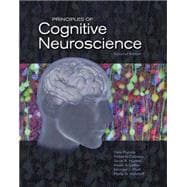
Note: Supplemental materials are not guaranteed with Rental or Used book purchases.
Purchase Benefits
Looking to rent a book? Rent Principles of Cognitive Neuroscience [ISBN: 9780878935734] for the semester, quarter, and short term or search our site for other textbooks by Purves, Dale; LaBar, Kevin S.; Platt, Michael L.; Woldorff, Marty; Cabeza, Roberto; Huettel, Scott A.. Renting a textbook can save you up to 90% from the cost of buying.
| Cognitive Neuroscience: Definitions, Themes, and Approaches | |
| Cognitive Neuroscience Methods | |
| Sensory Systems and Perception: Vision | |
| Sensory Systems and Perception: Auditory, Mechanical, and Chemical Senses | |
| Motor Systems: The Organization of Action | |
| Attention and its Effects on Stimulus Processing | |
| The Control of Attention | |
| Memory: Varieties and Mechanisms | |
| Declarative Memory | |
| Emotion | |
| Social Cognition | |
| Language | |
| Executive Control | |
| Decision Making | |
| Evolution and Development of Brain and Cognition | |
| Table of Contents provided by Publisher. All Rights Reserved. |
The New copy of this book will include any supplemental materials advertised. Please check the title of the book to determine if it should include any access cards, study guides, lab manuals, CDs, etc.
The Used, Rental and eBook copies of this book are not guaranteed to include any supplemental materials. Typically, only the book itself is included. This is true even if the title states it includes any access cards, study guides, lab manuals, CDs, etc.